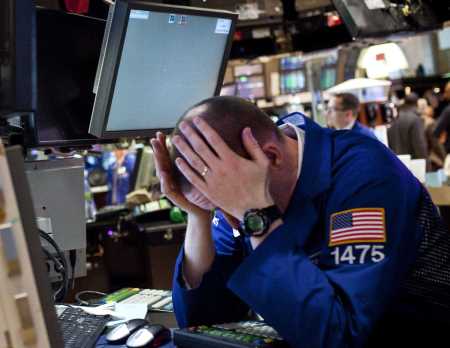Cable Stocks Start to Feel Effects of Coronavirus

The smarter way to stay on top of the multichannel video marketplace. Sign up below.
You are now subscribed
Your newsletter sign-up was successful
The Dow Jones Industrial Average fell another 1,000 points early Friday, culminating what has been one of the worst weeks in more than a decade for the index as investors continued to be skittish over the worldwide impact of the deadly Coronavirus, which has so far claimed more than 2,800 lives in more than 50 countries and threatens to become a global pandemic. Cable stocks, which early on weathered the declines, started a steeper fall on Feb. 27 as fears the virus could shut down the Olympic Games, scheduled to begin July 24 in Tokyo, began to impact the sector.
The Dow has fallen more than 3,600 points in the past two weeks -- from 29,398.08 on Feb, 14 to 25,766.64 on Feb. 27 -- an is on path toward a 5,000-point decline in that 14-day period barring a miracle on Friday. After a 1,000-point drop earlier in the day, the Dow rebounded slightly, off by about 695 points by mid-day Feb. 28. Barring a miracle, the index appears on pace to have its greatest week-long point decline since 2008, the beginning of the Great Recession.
Cable stocks had managed to be relatively stable earlier in the month as the rest of the market felt the effects of the virus. By Feb. 14, most cable distribution stocks were up for the month -- Comcast was trading at $46.09 (up 7%), Altice USA was up 4.9% to $28.71 each, Charter was priced at $534.89, up 3.4% and Cable One, which has had an unprecedented run, nearly doubling its stock price over the past 12 months, closed at $1,774 each, up 4.1%. Even programming stocks, some which have greater exposure to the virus because of their businesses in Asia (which has been hit hardest by the health hazard), managed to keep declines at a minimum.
The Walt Disney Co., which has theme parks in China and parts of Europe and depends on international travelers for its U.S. venues, managed to gain about 1% in its stock price between Jan. 31 and Feb. 14, while Discovery gained 3.2%. Viacom was up 2.5% and AMC Networks increased 3.3% during the same period.
But that all changed as the virus worsened and fears that it would spread throughout the globe.
Overall, pay TV distribution stocks were up about 3.9% between Jan. 31 and Feb. 14, but fell 10% between Feb. 14 and Feb. 27. On the programming side, content stocks were essentially flat between Jan. 31 and Feb. 14, but fell a collective 15.6% in the following two weeks.
Comcast shares started to soften after Feb. 20, and started a steeper decline as the week progressed after reports surfaced after an International Olympic Committee official said the epidemic could lead to a cancellation of the Summer Games.
The smarter way to stay on top of the multichannel video marketplace. Sign up below.
According to reports, IOC official Dick Pound said the committee had a two- to three-month window to decide whether to cancel the games, meaning a decision could be made as early as May.
The Tokyo IOC immediately cited those reports as mere speculation.
"Tokyo 2020 will continue to collaborate with all relevant organisations which carefully monitor any incidence of infectious diseases and will review any countermeasures that may be necessary with all relevant organisations," the local organizing committee said according to NPR.
The modern Games have only been canceled on two occasions -- World War I and World War II -- and the loss of the 2020 Summer Olympics could deal a severe blow to Comcast, whose NBCUniversal has the exclusive U.S. rights to the games. Discovery, which has European rights to the Olympics through its Eurosport unit, also could be adversely affected if the 2020 Games were canceled.
Some analysts have speculated a canceled 2020 Games could cost Comcast more than $1 billion in lost revenue. As a result, its stock has fallen more than 10% between Feb. 14 and Feb. 27, and was down another 4% on Friday.
Discovery shares also lost ground in that time frame -- the stock was down 18% between Feb. 14 and Feb. 27. However, the stock has begun to claw back -- it was up about 3% in afternoon trading Friday.
On a conference call with analysts Feb. 27 to discuss Q4 results, Discovery chief financial officer Gunnar Wiedenfels said the company is working closely with the IOC and will follow its lead, adding that Discovery has insurance protection if the Games are canceled.
“You should rest assured that it’s not going to have any adverse impact on our financials,” Wiedenfels said on the call.
